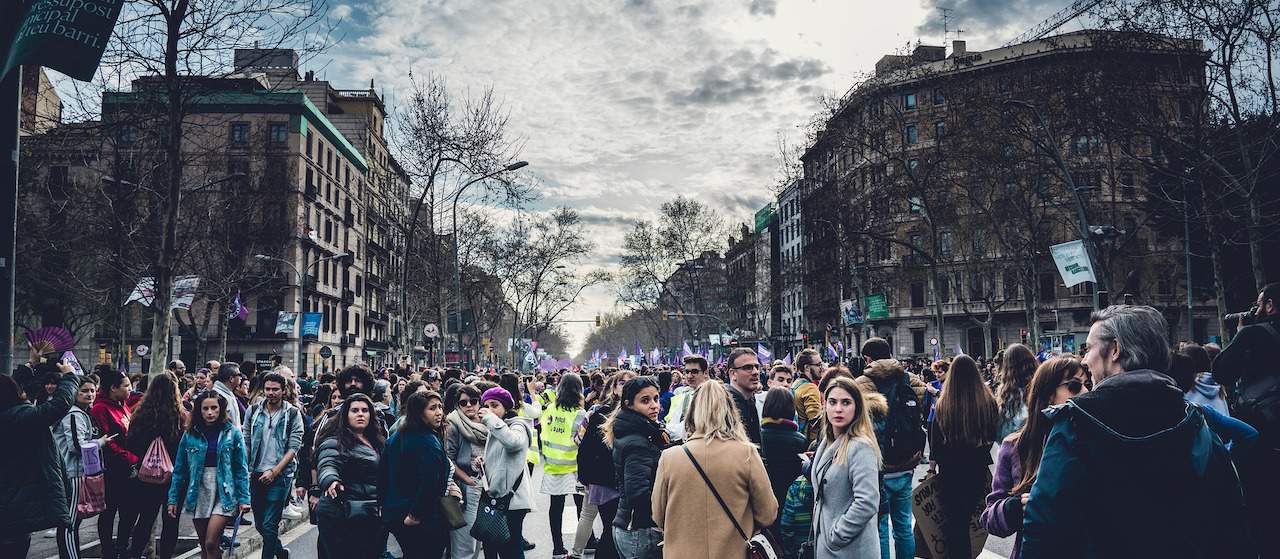
This blog post is the first part of a short blog post series. The main focus of this first part lies on the path of equality, the rejection of violence suffered and overcome by Women, while the second part will mainly focus on actual movements.
Within the manifestations presented throughout Latin America in recent years, the participation of women has become a central part of the speeches of recognition and reconciliation, carrying a great message throughout the territory and the world. Two elements stand out from this message, one of them is the clear rejection of violence suffered by women before the distracted eyes of modern institutions; another is that the participating Latin American women and environmental guardians still carry with them: the development of political rights and environmental awareness. They remind us of the struggle, still unfinished, of women and past generations. Although, it is not the first time that women have been part of social mobilizations, since there are antecedents and records of women even in battlefields. This speech aims to go beyond a simple idea of equality, raising a shout of recognition to all the work they have done throughout history, and claiming to want to give greater scope to the advances that have been made in the matter of rights.
The Rejection of Violence Suffered by Women
The figures of violence against women are not only worrisome, but new forms of discrimination and violence are appearing, as cultural changes and the influence of new technologies are taking place, as well as the change of perspective in many customs that have denatured different forms of domestic abuse and violence. For these reasons, gender discourses have been imbued in the protesters’ requests throughout the continent, creating – not only songs, mobilizations, banners – but trends that reproduce in the network, making the ruptures evident between the institutional discourse of gender equality and the actual social reality. The message is very clear, state institutions need to work more for the welfare of thousands of women of all ages, women who feel alone in their jobs, in their homes, in their cities, on the way home.; women that feel in danger about wanting to be free.
The Path of Equality and Nonviolence
Indeed, to walk a path of equality is to walk the path of nonviolence; a road that seems to be very long, but that joins with the path of inequalities of yesteryear, which goes back to culture. Today, women seek to build a new path that does not quarrel, a real space in which they do not have to live with humiliations or interruptions to their vital and personal space, much less to their intimate life. Women need that respect that moves them away from the notion of an object and brings them calmly to spaces such as the exercise of public and private power; subjects, those that sometimes the constitutions leave in sight by all sides.
That disinterest converges with contempt for nature; institutions in Latin America are tending to indiscriminate exploitation of natural resources, in a marriage between money and politics that has only left deformed children and countries without resources to meet basic needs. In contradiction, a discourse of development is needed that quarrels with various ways of seeing the world. This various ways of seeing the world are still existing on our continent; they loom over the ways that ecosystems make us see the earth, they present alternative ways of surviving. These fighting spaces have also been silently led by women, those who have taken care of territories, customs, ecosystems and species, and as a reward they have been victims of violence as a weapon of war.
Read part two of this blog post series here.
An article by Astrid Torres, YGC 2020
___
The views and opinions expressed in this article are those of the authors and do not necessarily reflect the views of the Global Solutions Initiative.
___

Astrid, Young Global Changer of 2020, holds a degree in Social Communication, filmmaker and social activist. Co-founder of the Ibero-American Youth Network and was a spokeswoman for the delivery of the Youth Pact at the XXV Ibero-American Summit. She coordinates the journalistic project Efecto Latam and is the author of cinematographic works with social discourses. Her researches explores on informational capitalism, memory, visuals on climate change and symbolic violence.
